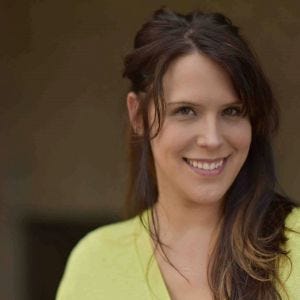Clinical trials: Putting the proof back in health claims
Dietary supplement “structure/function” claims have long been shrouded in regulatory uncertainty, limiting their utilization by companies hoping to validate and differentiate their products.

Nothing evokes fear in a dietary supplement manufacturer, marketer or risk manager quite like the “s” word and the “f” word. Even with Federal Trade Commission (FTC) and FDA guidance, dietary supplement “structure/function” claims have long been shrouded in uncertainty, limiting their utilization by companies hoping to validate and differentiate their products.
A structure/function claim is a statement that commonly appears on the label of a dietary supplement about how a product might affect the human body’s structure—such as “enhances muscle tone”—or function—such as “strengthens your immune system.” Critics argue these claims are unreliable because they don’t require preapproval by a government agency. Some lawyers contend the information can be false and misleading to consumers and therefore potential fodder for class action lawsuits or FTC intervention.
FDA warns companies to steer clear of disease claims, even implied disease claims from testimonials that mention a disease, referencing a research paper on a disease, or use of graphics that suggest a disease. On the other hand, brands and consumers alike argue the effectiveness of certain supplements on structure, function and disease of the human brain or body is real.
The pharmaceutical drug difference
To be clear, disease claims are only within the purview of pharmaceutical drugs and out of reach for dietary supplements. Pharmaceutical companies can make disease claims because their business model can afford the inordinate cost and time for the clinical trials needed for FDA approval of such claims. Thanks to the clinical trial findings, drugs also don’t have to carry the patronizing mandatory disclaimer on dietary supplements that “this product is not intended to ‘diagnose, treat, cure or prevent any disease.’"
But the problem with pharmaceuticals is access. For brands, it's access to solutions without waiting the average decade or more for new drug approval. For consumers, it’s access without necessitating a doctor’s office visit, taking off work, obtaining a prescription, and above all, needing good insurance coverage or paying exorbitant out-of-pocket costs.
Dietary supplements are a potential solution to all these issues. However, in addition to their inability to make disease claims under FDA regulations, most dietary supplement products cannot even make strong structure/function claims since many of them do not have a single clinical trial specific to their product. The extraordinary investment of money and time required for traditional clinical trials serves a patent/monopoly pharmaceutical business model. For the generally unpatentable business model of dietary supplements, these costs simply make clinical trials out of reach.
In a way, dietary supplement brands often find themselves competitively castrated from a marketing perspective, both in competition against pharmaceutical drugs and in competition against other supplement brands. Without the proof of effectiveness for specific conditions or for specific target populations, supplement brands are often flying blind.
The roots of the pharmaceutical industry lie back with the apothecaries and pharmacies that offered traditional natural remedies as far back as the Middle Ages. These facilities offered a hit-and-miss range of treatments based on centuries of folk tales. It wasn’t until the last century that chemists invented synthetic drugs and birthed the pharmaceutical industry. For the first time in history, medicine could be protected by patents and highly profitable, and expensive clinical trials were created to prove the effects and justify the high price of the new pharmaceuticals. Unfortunately, without easy access to such clinical trials for that coveted proof of effectiveness, many of today’s supplement brands still need to resort to testimonials and fancy advertising to sway consumers, drive sales and differentiate in a crowded market.
Dietary supplements and claims
Given the litigious nature of product claims, the rules that do exist are becoming increasingly expanded and more complex. When it comes to claims and dietary supplements, FDA relies on FTC for guidance, namely the organization’s ``standard of competent and reliable scientific evidence.” The standard has been defined as “tests, analyses, research, studies or other evidence based on the expertise of professionals in the relevant area, that has been conducted and evaluated in an objective manner by persons qualified to do so, using procedures generally accepted in the profession to yield accurate and reliable results.”
FDA uses the FTC standard for inspiration on its dietary supplement industry guidance, but FDA guidance has its shortcomings. According to FDA, “there is no pre-established formula as to how many or what type of studies are needed to substantiate a claim.” This makes it hard for a dietary supplement brand to know if it is providing sufficient diligence to substantiate a claim.
FTC’s hot-off-the press “Health Products Compliance Guidance” is a game-changer. In December 2022, the “competent and reliable scientific evidence standard” was expanded to emphasize the general rule that FTC expects companies to support health-related claims with high-quality, randomized, controlled human clinical trials (RCTs). While FDA has yet to weigh in on how the new FTC regulations will influence FDA dietary supplement industry policy and guidance, clinical trials in a brand’s marketing and legal strategy merit serious consideration. This new regulatory clarification could help put the proof back in claims.
With a master of engineering and MBA from Cornell, Pelin Thorogood is a tech-executive-turned-impact-entrepreneur with a focus on data and analytics. She is the co-founder and executive chair of Radicle Science, with a mission to close the proof gap between supplements and pharmaceuticals. Thorogood is a trustee and treasurer of UC San Diego Foundation, co-chair of UCSD Innovation and Entrepreneurship Council, and industry scholar for the Cornell Institute of Healthy Futures.
A physician-scientist, Jeff Chen, M.D., is the co-founder and CEO of Radicle Science, which has pioneered a path for non-pharmaceuticals to clinically prove their true effects beyond placebo. He led clinical trials on natural products as the founder of a UCLA research center. After graduating from Cornell, Chen earned his medical degree and MBA concurrently from UCLA, where he is a David Geffen Fellow and UCLA Wolfen Entrepreneur.
Jaclyn Bowen is a food safety and quality systems engineer, and executive director of Clean Label Project, a nonprofit consumer advocacy organization with the mission to bring truth and transparency to food and consumer product labeling. Previously, she held numerous technical, standards development, food safety, quality and executive roles within the World Health Organization (WHO) Collaborating Centre, NSF International. Bowen holds masters’ degrees in quality engineering and public health management & policy.
About the Authors
You May Also Like




